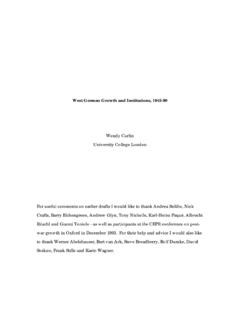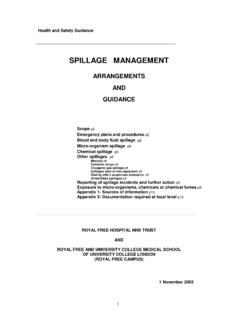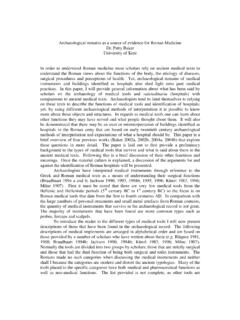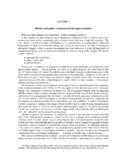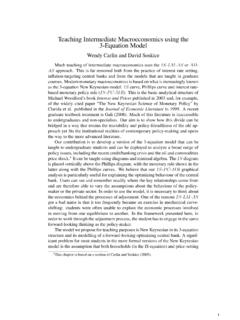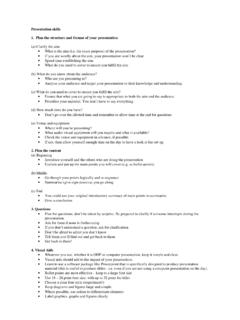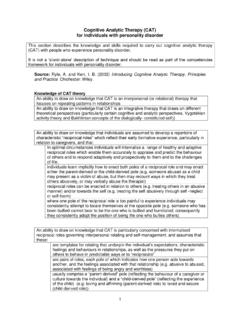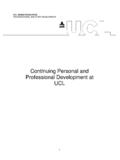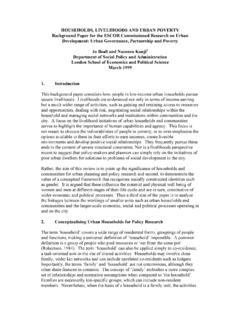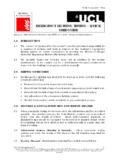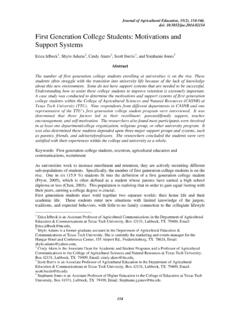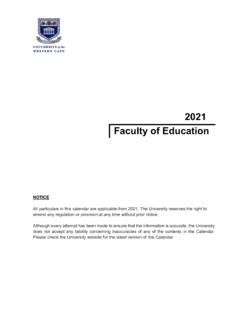Transcription of Introduction to Academic Writing - University College …
1 Introduction to Academic WritingUCL Writing LabDRKJ REILLY2 Introduction to Academic WritingThis study pack is designed to take about 50 minutes. It will give you an Introduction to Academic Writing , sharing the most important principles that will guide you through Writing during your degree at was put together by the Writing Lab, which is the section of the Academic Communication Centre(ACC) that serves students from Bartlett; Psychology & Language Sciences; Arts, Humanities, Social & Historical Sciences. Students from all other faculties can refer to the main ACC page for your provision. But the information contained herein is widely applicable. A Note on ContextDR KJ REILLY3 There is more that one correct way to do Academic Writing .
2 The advice the Writing Lab will give you is based on what will work best in the UK, at UCL. These conventions are based on the rhetorical traditions here. There are other equally valid styles and systems for other contexts. Research has shown that rhetorical styles in Writing vary around the world (Jarvis and Pavlenko, 2008). Indeed, styles of Writing are also affected by your own discipline / subject area science, law, humanities so inflect what you learn here with your understanding of your own disciplinary context to Academic WritingDR KJ REILLY4 This self-study workshop about Academic Writing will cover:odeveloping your awareness of the University s (and your own) expectations of education and Academic writingotips on planning your Writing and on critical thinkingokey principles for Academic Writing , across the 3 stages of writingoother useful resourcesobeginning to help you feel more confident about will do 3 relaxed Writing exercises, so have something with you that you can write with.
3 Ta-NehisiCoates on breakthroughs and growing new muscles: UCL Writing LABTa-Nehisi Coates is an author, journalist and public intellectual who writes best-selling works of non-fiction, published his first novel in 2019, and is the current author of the Marvel comics The Black Panther and Captain America. Among other things, he writes about race, reparative justice, whiteness, and America. He has also spoken and written very helpfully about the process of Writing . Ta-NehisiCoates on breakthroughs and growing new muscles: UCL Writing LABIn the next slide you can see his description of working hard on Writing and gaining new abilities in the process. He talks about stress , but we take this to mean not the bad kind of stress we want to avoid or manage, but stress as in a stress test in a Physical Education class in which you do the same run over and over again, measuring yourself, pushing your limits, and getting faster.
4 (The quote is extracted from a short video he gave on The Atlantic website you can watch the whole thing using the link in the title here.) Ta-NehisiCoates on breakthroughs and growing new muscles: UCL Writing LAB I had to write an 8000-word piece for the magazine. It was hell. I think breakthroughs come from that sort of stress. When I got done that piece, I was clear that these were things that I was not capable of doing before. Like, the Writing was very, very different, the sentences had much more power, and I think a lot of that had to do with the stress I was under. I think breakthroughs come from putting [..] pressure on yourself, and seeing what you can take, and hoping that you grow some new muscles.
5 It s not really that mystical, it s like repeated practice over and over again, and then suddenly you become something that you had no idea that you could really be. Ta-NehisiCoates on breakthroughs and growing new muscles: UCL Writing LAB This video with Ta-Nehisi Coates really helped me at a time when I thought my PhD thesis was too much for me, beyond my abilities. My friends would tell me, you can do it! and although that was nice of them, I felt it didn t help. Because I knew that there were these moments when it was too hard. Then, when I watched this, hearing him essentially say, that s true, right now, you can t do it helped me surprisingly. Because he was reflecting what I was experiencing, and explaining that yes, there are moments when you can t do it but, if you keep going, by doing it, you become able to do it.
6 You grow the new muscles. Dr. Kerry-Jo Reilly, Writing Lab ConvenorSo remember that as we study and write, we will continue to come up against our limit. We can expect that to happen. But if we keep going, we push through that limit, and make a new one. Exercise: Free writingDR KJ REILLY9 Many Writing workshops begin with what s called a free write . This is where you set a timer for, say, 2 minutes, and just write whatever comes to you. The Writing probably won t make sense, but that s the point, it s just to get you going. Don t think about what you re Writing just begin and don t stop until the timer goes off. Now, turn to the next slide, set a timer for 2 minutes, and free write.
7 (And you can try doing this in future, any time you sit down to write.)Free Write2 minutesDR KJ REILLY10 Why Do We Write Essays?Of course, we write essays because we have to, in order to get our degree. But what else does it do for us? We write essays to: oTo develop and demonstrate our understanding of a topicoTo get useful feedback on our progress, which will help us growoTo practice and improve Writing skills so that when we graduate, we take with us, not only a body of knowledge about our subject, but also communication skills that will serve us wellDR KJ REILLY11 Why Do We Write Essays?oTo demonstrate critical thinking this is crucial, and we will return to it in more detail later in this workshopoTo intervene in Academic debates when we write essays, we are joining the conversation in our field, and contributing to that exchange (this is why we reference properly and we will also return to that issue later in this workshop)
8 OTo synthesise and develop your own views on a topic as we will discuss later, the process of Writing serves to help us work out what we ourselves think about an issue, and being able to do that will serve us, and our communities, wellEssay- Writing might seem like a chore but try to think of it in a positive light people are interested in your ideas, argument and thinking. It gives you the space to explore your KJ REILLY12 Higher EducationAs you embark on your course of study, take a moment to consider these questions: What is my concept of knowledge? Is it something given to me by others? Is it something I create, or co-create? What are our roles, as students, and teachers, in this?
9 What kind of thinking is required at UCL? We could argue that the institutions in which we find ourselves are not perfect. Though we may find ourselves in places with a very imperfect history and present, the intellectual, cultural critic, and writer named bell hooks suggests what we might do as scholars despite that:DR KJ REILLY13bell hooks on Higher EducationDR KJ REILLY14 The academy is not paradise. But learning is a place where paradise can be created. The classroom with all its limitations remains a location of possibility. In that field of possibility we have the opportunity to labour for freedom, to demand of ourselves and our comrades, an openness of mind and heart that allows us to face reality even as we collectively imagine ways to move beyond boundaries, to transgress.
10 (hooks 1994: 207) hooks, bell (1994) Teaching to Transgress. Education as the practice of freedom, London: Routledge. Exercise: JournalingDR KJ REILLY15 Many writers and artists have a practice of journaling. This is where we write to ourselves about how we are feeling and what we are thinking about our progress. It can be a very good way to be conscious of how we are doing, and what we need. Now, try journaling for 3 minutes. Turn to the next slide, where there are some prompt questions, which you can use if it is helpful. Set the timer for 3 minutes and begin. Journal3 minutesWhy do I want to study this subject? Where do I want my studies to take me? (intellectually, professionally, etc.)
